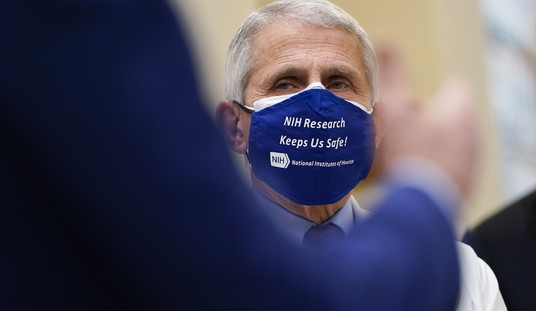I’m not making this up.
To recap, this week saw Iraqi forces driven out of the city of Ramadi after what was classified as elite Iraqi units executed that tactic perfected by the now-defunct ARVN: di di mau.
In a replay of last year’s military debacle, elite units abandoned their U.S.-provided equipment to Islamic State fighters and fled the area, leaving several hundred soldiers surrounded in the last government-held enclave in the city.
Multiple security sources, none of whom agreed to be identified, speaking from both within the besieged Anbar Operations Center as well as with the units fleeing the city, described the fight for control of the capital of Iraq’s largest province as essentially over after reinforcements sent on Saturday to retake the city were crushed by Islamic State fighters.
“Only God can save us,” said one officer speaking by phone from inside the Anbar operations center, where officers had been coordinating the operation. The officer said that several hundred policemen and soldiers were surrounded inside the command center, which was repeatedly struck by suicide bombers and heavy artillery fire as militants cut off their last routes of escape.
Iranian-fueled rumors that the U.S. is arming the Islamic State, or ISIS, with weapons have resulted in at least one instance where anti-ISIS fighters fired on U.S. forces. Iran’s Quds Force commander Qassem Suleimani, the most important military leader in Iran, and a man with tremendous influence over Iran’s activities in both Iraq and Yemen, believes the rumor fully according to a key U.S. special operations forces commander in Iraq.
By most standards, this turn of events would have a sane person bleeding from every orifice. Even the Washington Post has noticed:
IT HAS been apparent for some time that the United States lacks a strategy to fulfill President Obama’s pledge to “degrade and ultimately destroy” the Islamic State since it has no plan to root out the terrorists’ base in Syria. There was hope, though, that Mr. Obama’s half-measures might be enough to blunt the Islamic State’s advances in Iraq, leaving the Syria problem for the next U.S. president. With the stunning fall of Ramadi on Sunday, even that modest optimism is questionable.
…
In fact, Sunni allies in the region will be reluctant to work with the United States until it has a Syria policy, and Sunni tribes in Iraq will not confront the Islamic State unless they believe the United States will stand by them. Every conflict will have ups and downs, as administration spokesmen said Monday. But it is Mr. Obama’s unwillingness to match means to strategy that threatens to prolong this war.
But our White House is made of sterner stuff. That’s why they are in charge. This exchange is between ABC’s Jon Karl and a thoroughly dishonest Josh Earnest.
Q Now, on the overall track record of military operations of the President’s strategy on this, you said we’ve seen periods of progress and success. Would you say that overall, this strategy has been a success?
MR. EARNEST: Well, Jon, yes. Overall, yes. It doesn’t mean that there haven’t been areas of setback, as we saw in Ramadi.
Q I mean, is exporting terror to Libya, taking over the capital of Iraq’s largest province — this is overall success?
MR. EARNEST: What we’ve also seen is we’ve also seen a coalition of 60 nations both in the region and around the world join the United States in this fight. We’ve seen a new Prime Minister take office in Iraq and unite that country and deploy a multi-sectarian security force against ISIL that has succeeded in liberating important areas of Diyala and Babil and Nineveh and the Kirkuk Provinces. We’ve seen important Iraqi security force gains in Tikrit *and Ramadi. We’ve also seen strategic areas like Sinjar Mountain and Mosul Dam where Iraqi security forces have emerged victorious.
So we have seen a lot of success. But we’ve also seen significant periods of setback. And that’s part of what a military conflict is going to be, particularly when it’s going to be a long-term proposition like this one.
Seriously. We’ve been turfed out of Yemen by our “allies.” The Gulf States are pursuing their own foreign policy because of the absence of US leadership. Libya remains in chaos. Syria would have to improve in order to be a disaster. If this is an overall success then we all need to pray we never see failure.













Join the conversation as a VIP Member